
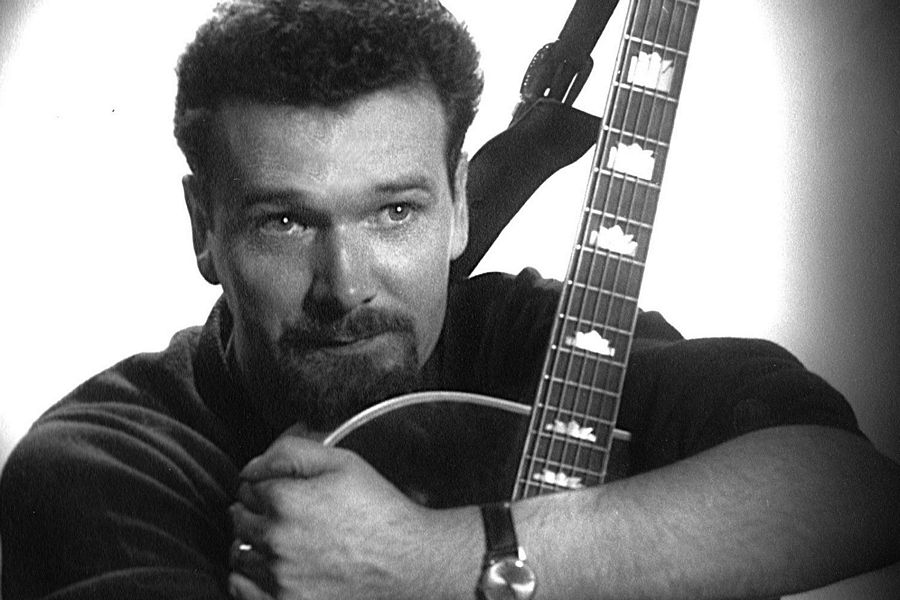
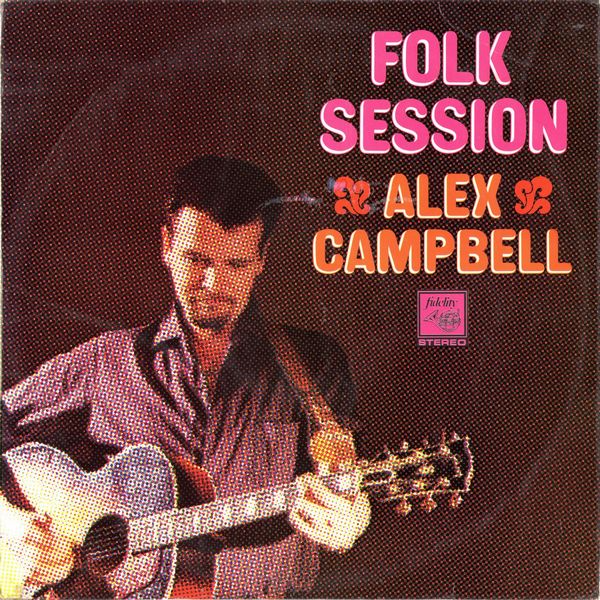 |
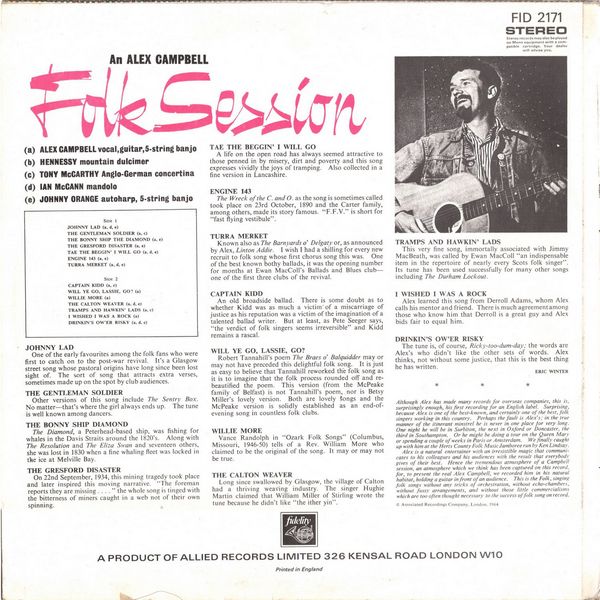
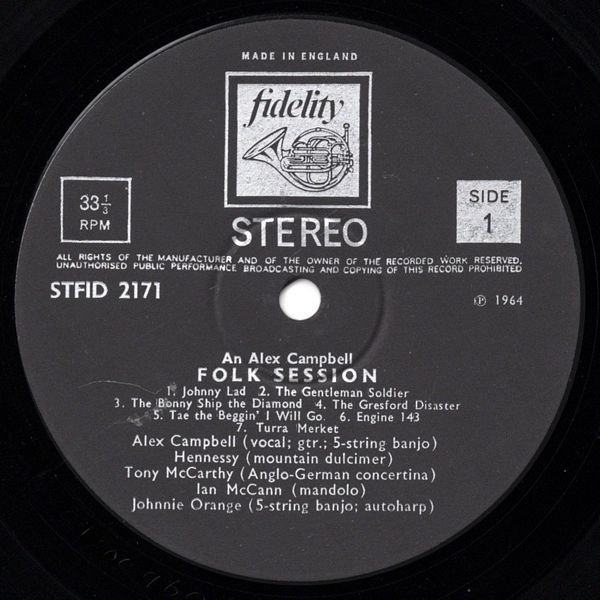
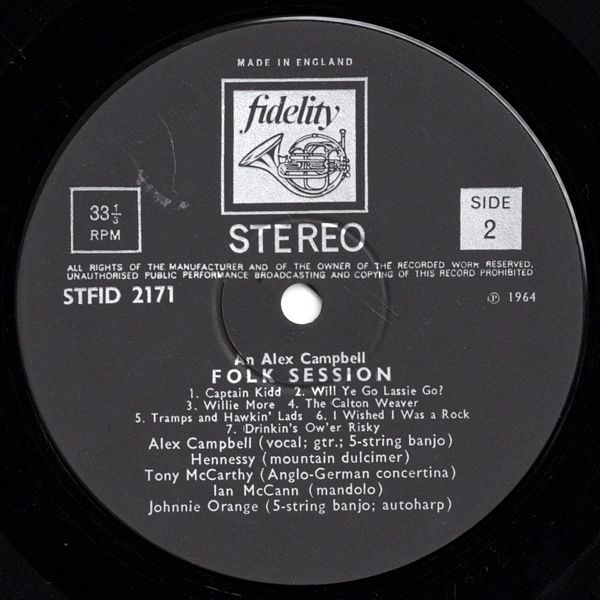
|
Sleeve Notes
JOHNNY LAD — One of the early favourites among the folk fans who were first to catch on to the post-war revival. It's a Glasgow street song whose pastoral origins have long since been lost sight of. The sort of song that attracts extra verses, sometimes made up on the spot by club audiences.
THE GENTLEMAN SOLDIER — Other versions of this song include The Sentry Box. No matter — that's where the girl always ends up. The tune is well known among dancers.
THE BONNY SHIP DIAMOND — The Diamond, a Peterhead-based ship, was fishing for whales in the Davis Straits around the 1820's. Along with The Resolution and The Eliza Swan and seventeen others, she was lost in 1830 when a fine whaling fleet was locked in the ice at Melville Bay.
THE GRESFORD DISASTER — On 22nd September, 1934, this mining tragedy took place and later inspired this moving narrative. "The foreman reports they are missing … " the whole song is tinged with the bitterness of miners caught in a web not of their own spinning.
TAE THE BEGGIN' I WILL GO — A life on the open road has always seemed attractive to those penned in by misery, dirt and poverty and this song expresses vividly the joys of tramping. Also collected in a fine version in Lancashire.
ENGINE 143 — The Wreck of the C. and O. as the song is sometimes called took place on 23rd October, 1890 and the Carter family, among others, made its story famous. "F.F.V." is short for "fast flying vestibule"
TURRA MERKET — Known also as The Barnyards o' Delgaty or, as announced by Alex, Linton Addie. I wish I had a shilling for every new recruit to folk song whose first chorus song this was. One of the best known bothy ballads, it was the opening number for months at Ewan MacColl's Ballads and Blues club — one of the first three clubs of the revival.
CAPTAIN KIDD — An old broadside ballad. There is some doubt as to whether Kidd was as much a victim of a miscarriage of justice as his reputation was a victim of the imagination of a talented ballad writer. But at least, as Pete Seeger says, "the verdict of folk singers seems irreversible" and Kidd remains a rascal.
WILL YE GO, LASSIE, GO? — Robert Tannahill's poem The Braes o' Balquidder may or may not have preceded this delightful folk song. It is just as easy to believe that Tannahill reworked the folk song as it is to imagine that the folk process rounded off and rebeautified the poem. This version (from the McPeake family of Belfast) is not Tannahill's poem, nor is Betsy Miller's lovely version. Both are lovely songs and the McPeake version is solidly established as an end-of-evening song in countless folk clubs.
WILLIE MORE — Vance Randolph in "Ozark Folk Songs" (Columbus, Missouri, 1946-50) tells of a Rev. William More who claimed to be the original of the song. It may or may not be true.
THE CALTON WEAVER — Long since swallowed by Glasgow, the village of Calton had a thriving weaving industry. The singer Hughie Martin claimed that William Miller of Stirling wrote the tune because he didn't like "the ither yin".
TRAMPS AND HAWKIN' LADS — This very fine song, immortally associated with Jimmy MacBeath, was called by Ewan MacColl "an indispensable item in the repertoire of nearly every Sco s folk singer". Its tune has been used successfully for many other songs including The Durham Lockout.
I WISHED I WAS A ROCK — Alex learned this song from Derroll Adams, whom Alex calls his mentor and friend. There is much agreement among those who know him that Derroll is a great guy and Alex bids fair to equal him.
DRINKIN'S OW'ER RISKY — The tune is, of course, Ricky-too-dum-day; the words are Alex's who didn't like the other sets of words. Alex thinks, not without some justice, that this is the best thing he has written.
Eric Winter
Although Alex has made many records for overseas companies, this is, surprisingly enough, his first recording for an English label. Surprising, because Alex is one of the best-known, and certainly one of the best, folk singers working in this country. Perhaps the fault is Alex's; in the true manner of the itinerant minstrel he is never in one place for very long. One night he will be in Surbiton, the next in Oxford or Doncaster, the third in Southampton. Or he might be doing a tour on the Queen Mary or spending a couple of weeks in Paris or Amsterdam. We finally caught up with him at the Herts County Folk Music Jamboree run by Ken Lindsay.
Alex is a natural entertainer with an irresistible magic that communicates to his colleagues and his audiences with the result that everybody gives of their best. Hence the tremendous atmosphere of a Campbell session, an atmosphere which we think has been captured on this record, for, to present the real Alex Campbell, we recorded him in his natural habitat, holding a guitar in front of an audience. This is the Folk, singing folk songs without any tricks of orchestration, without echo-chambers, without fussy arrangements, and without those little commercialisms which are too often thought necessary to the success of folk song on record.
© Associated Recordings Company, London, 1964